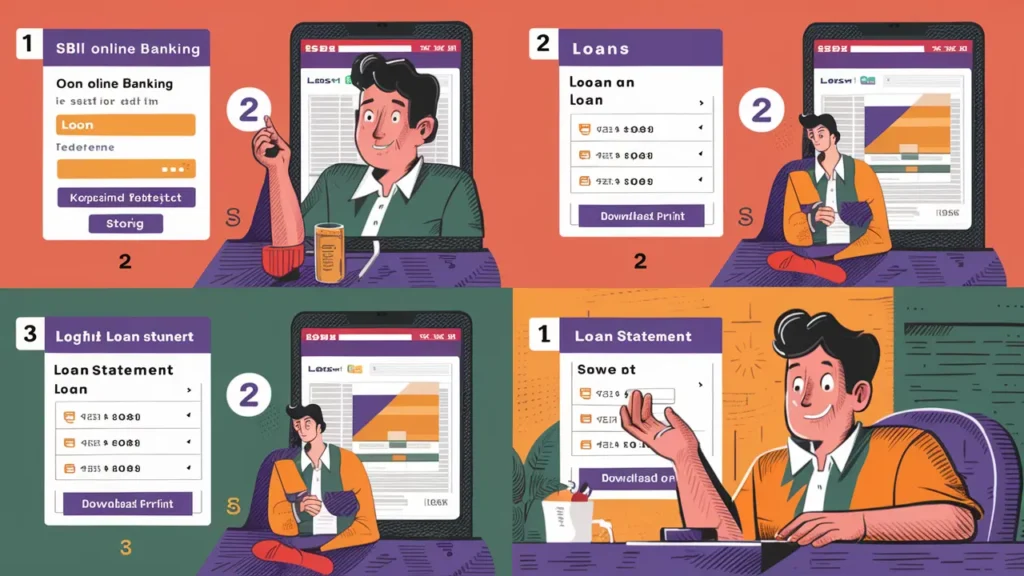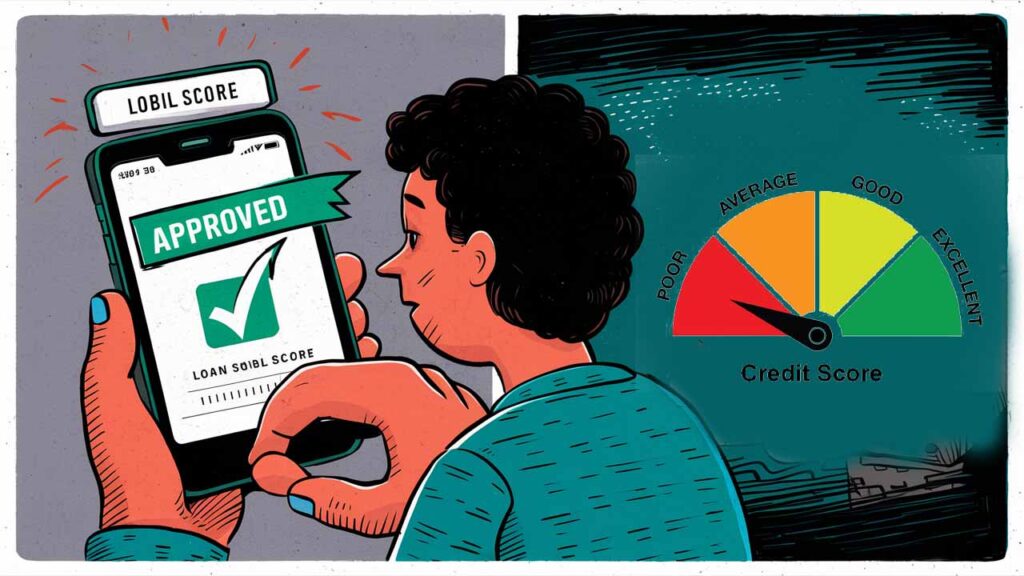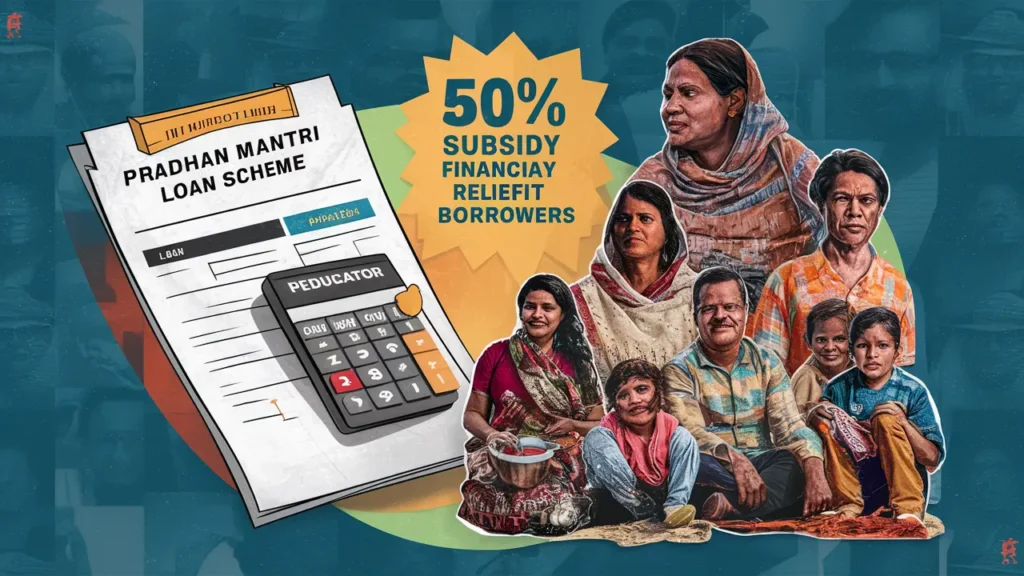Summary
A CIBIL score is a 3-digit number that reflects your creditworthiness. If it is more than 750, it is excellent and allows you to borrow easily with favorable terms. Below 700 can result in loan rejection or the payment of higher interest rates. To raise your score, pay your dues on time, keep your utilization below 30%, do not apply for too many loans, and review your credit report for errors. Leave existing credit accounts open and have a balance of various credit types (such as loans and cards). In 2025, credit scores are more sensitive to online behavior and steadiness. If your score is low (less than 650), fix it by fixing report mistakes, paying off debts wisely, and utilizing secured credit cards. Fixing takes time—3 to 12 months depending on your situation. Professional credit counsellors or bank representatives may assist. As soon as your score is enhanced, practice good habits to preserve it. Healthy score provides finer financial choices.
Introduction
Your CIBIL score is a three-digit score that plays a significant part in your financial journey. It reflects how well you manage credit and assists banks and lenders in deciding whether to give you a loan or credit card approval. A good CIBIL score (typically more than 750) can help you secure better interest rates, increased loan amounts, and quicker approvals. A low score can result in loan rejection or increased interest expenses. This article will guide you on what your CIBIL score is, how it impacts your financial condition, and what you should do to correct it. Whether your score is already good or needs improvement, you’ll find useful tips and expert strategies here. We also explain recent updates in the credit system
Understanding CIBIL Score and Its Effect on Your Financial Well-being
A good CIBIL score unlocks financial doors and improved loan conditions. Banks and other financial institutions in India use this three-digit figure to assess your creditworthiness. Although it takes time to build a good score, financial advisors have found some methods that can improve your score quicker than you can imagine.
Why Your CIBIL Score Matters
Your CIBIL score influences several aspects of your financial life. A score higher than 750 is usually excellent and makes you eligible to get preferential interest rates and increased loan amounts. Individuals with lower scores tend to be rejected or given unfavorable conditions while seeking credit.
Banking experts point out that your score indicates your financial responsibility and discipline. It is your financial reputation in the lending system.
Fast Methods to Verify Your Existing CIBIL Score
Financial advisers suggest that prior to making any improvement plans, understanding your existing position is important. One can get their CIBIL score from:
Official CIBIL Website
Direct access from CIBIL’s official website is the most authentic source. You can avail one free in-depth report a year, and for subsequent inquiries, there will be a minimal cost involved.
Banking Partners
Most of the top banks and financial institutions provide free CIBIL score checks to their existing customers either through their mobile apps or net banking portals.
Third-Party Financial Platforms
Some of the fintech players do offer free credit score checks, but experts advise to check their authenticity prior to parting with personal details.
Professional Tips to Improve Your CIBIL Score
Financial experts who have spent decades dealing with credit analysis have given these time-tested tips for the effective improvement of your score.
Regular Payment of Pending Dues
Payment history is the biggest single factor affecting your CIBIL score according to credit counselors. Making regular on-time payments over an extended period of time lends confidence to lenders.
Create a payment calendar for credit cards and loans noting all bill due dates. Paying automatically can help to prevent the possibility of missed payments resulting from neglect or a hectic schedule.
Maintain Low Credit Utilization Ratio
Banking experts recommend maintaining your credit utilization at less than 30% of available credit. This percentage has a significant bearing on your score calculation.
For example, if your credit card limit is ₹1,00,000, attempt to maintain your outstanding balance at less than ₹30,000 even if you can pay more. Increased utilization indicates possible financial pressure to credit bureaus.
Diversify Your Credit Portfolio
Financial experts recommend having a balanced portfolio of secured and unsecured credit. Having a single loan does not prove your capacity to handle diverse financial obligations.
Try to have a good blend of credit cards and loans, as long as you can manage them well. This proves your adaptability in managing different kinds of credit obligations.
Limit Credit Applications
Each credit card or loan application prompts a hard inquiry that reduces your score temporarily. Credit professionals suggest separating applications by a minimum of six months.
Repeated denials can significantly affect your assessment of creditworthiness. Check eligibility requirements well in advance of applying to minimize unnecessary hard inquiries.
Check Your Credit Report Often
Financial experts emphasize that you should review your credit report for errors at least every six months. Mistakes in reporting can reduce your score unjustly.
Check for inconsistencies like:
- Loans that you have never taken
- Payment status that is reported inaccurately
- Accounts that are not closed despite settlement
- Multiple listings of a single loan
- Settlement of Old Dues
Though paying off old debts prevents legal issues, credit counselors caution that settlements instead of payments can keep on impacting your score in the negative.
At the time of settling old accounts, ask the creditors to modify your status as “settled” instead of “defaulted” in reports filed with CIBIL.
Keep Older Accounts Open
Length of credit history plays a huge role in determining your score. Banking experts recommend keeping your oldest accounts active but with minimal or no use rather than closing them entirely.
Long-standing accounts reflect your ability to manage credit over extended periods. This long-term data puts lenders at ease with your money habits trend.
Expected Timeframe for CIBIL Score Improvement
Credit correction is a slow process. Most financial experts notice that concrete improvements begin showing themselves in three to six months of consistent following of these steps.
For more serious corrections, particularly for those emerging from defaults or settlements, it can take as much as twelve months or even more. Discipline over this period of time is most critical.
How Professional Credit Counseling Can Help
For individuals in dire conflict with their credit history, certified financial planners give personalized advice appropriate to individual circumstances.
Expert counselors can spot personal issues halting your score from improvement and come up with customized improvement tactics in accordance with your financial situation and goals.
More banks nowadays offer free credit counseling to clients, recognizing the importance of fiscal literacy in well-kept credit profiles.
Learning What is a Bad CIBIL Score
A CIBIL score of under 650 is generally considered a problem for the Indian financial sector. Banks would rather consider scores in the range of 300-549 as bad, 550-649 as mediocre, and scores above 650 as increasingly better. The lending environment in 2025 has emphasized credit improvement more than ever before, with the banks getting progressively stricter in their lending practices following recent economic fluctuations.
Recent Trends in CIBIL Analysis in 2025
India’s credit rating system underwent subtle but profound change in the year to date. Credit bureaus have now assigned greater value to consistency relative to payment history. Further, digital loan impressions have played an increased score calculation role, which reflects increased online fiscal action.
New Reporting Mechanisms
Banks have improved reporting mechanisms, and your credit report gets updated faster. Previously, behaviors took three months to become apparent, but now they normally emerge within weeks. Strategic credit management is hence more dynamic and responsive in 2025.
Better Dispute Resolution Mechanisms
The process of dispute resolution has been hastened so that it can correct errors quicker. This is a relief for those who wish to correct honest errors that affect their score.
Professional Strategies to Rebuild a Low CIBIL Score
Experts have outlined various strategies that are effective in correcting troubled credit profiles. These strategies tackle various credit evaluation factors and complement each other to enhance your overall credit standing.
Deep Credit Report Review
Credit advisors recommend starting with a careful review of your entire credit report, not merely the score. This extensive review pinpoints exact areas for repair.
Look for the following kind of mistakes
- Tales from accounts not under your ownership
- Errors in loan status indicators
- Older bad information that has to be deleted
- several postings with the same debt
Financial planners advise paying delinquent accounts through strategic settlement. When negotiating with creditors, ask for specific reporting terms as part of your settlement deal.
Ask for terms like:
- Removal of late payment notations at settlement
- Status update to “settled” instead of “written off”
- Offering goodwill adjustments for accounts with otherwise favorable history
Credit Utilization Management Strategies
Professional bankers recommend an immediate decrease in credit utilization rates. This rate has a direct influence on your score calculation and provides one of the fastest methods of improvement.
Use the debt distribution strategy whereby you keep several cards with minimal balances instead of piling debt on a single card. This strategy tends to work better than carrying the same amount of debt on fewer cards.
Building Positive Credit References
Credit professionals recommend creating new positive references along with resolving negative ones. Secured credit instruments offer easy alternatives even for those with poor credit histories.
Think of secured credit cards that report to all the major bureaus. Make sure the issuer reports your activity to CIBIL and other credit information companies as applicable for best benefit.
Payment History Reconstruction
Financial advisors recommend creating a deliberate strategy to restore your payment history, the most significant factor in credit evaluation.
Take on the priority payment plan where you focus first on accounts that are still in the “recent activity” review period. Prior six-month past-due payments carry more weight on your score than longer-standing delinquencies.
Credit Mix Optimization
Banking professionals point to credit diversity as a largely unappreciated force behind score improvement. Financial flexibility is uncovered by having an even mix of credit types.
Try adding variations to your credit record such as small personal loans or consumer durable loans, if you can manage them well.
Timeline Expectations for Credit Repair in 2025
Financial planners caution against overnight miracles. Credit repair is a steady process, but results vary based on unique circumstances.
Short-term Gains
Any initial improvements in scores typically occur after correcting high credit utilization and paying off recent delinquencies. Such improvements typically show results within a one- to two-billing-cycle time frame.
Medium-term Progress
Resolution of disputes and formation of new positive payment habits typically impact your score between three and six months. This time frame demands steady commitment to your credit management plan.
Long-term Rehabilitation
Full recovery, especially for severe problems such as defaults or settlements, demands long-term effort spanning nine to twelve months. The credit environment pays back patience and steady money habits.
Professional Credit Consulting Services
For complex credit circumstances, seasoned finance experts provide guidance that suits unique situations. Expert advice is extremely useful when encountering several negative marks or challenging credit histories.
Legitimate Credit Repair Services
Experts at financial institutions separate reputable credit counseling agencies from predatory lenders. Honest agencies emphasize education, planning, and equipping you with tools to ensure financial well-being in the long term as opposed to making promises of quick returns.
Self-rehabilitation programs are
Finance professionals do concede that the majority of individuals can restore credit through self-restraint. Financial partners’ provisions along with financial websites offer the aid needed by this method.
Sustaining Financial Health Once Repaired
Credit counselors emphasize that keeping your upgraded score intact involves being watchful at all times. Establishing healthy money habits prevents ongoing problems as well as gives immunity from future financial problems.
Why a score below 700 in CIBIL Matters
A score below 700 puts you in a delicate position in Indian financial markets. Although not disastrous, this range significantly impacts whether you are able to get credit on favorable terms, as well as what rate of interest you pay. 700 has been deemed by lenders to be an important demarcating point from preferred to run-of-the-mill lending treatment. Best rates of interest as well as best terms are kept aside by lenders for those having scores above this level.
The Real Impact on Your Financial Decisions
Finance professionals point out that a score below 700 has practical consequences. Lenders view this score as being a medium level of risk, where there are concrete differences in what they do with your applications that are apparent.
Restrictions on approving loans
Experts from finance indicate that acceptance levels plummet when scores are below 700. There is a precipitous fall-off when applying to high-end financial agencies that have more stringent standards of credit.
Most traditional banks have a set of internal score thresholds that require additional screening of applicants who are below 700. It generally translates into further documentation requirements and longer than usual processing timelines.
Interest Rate Consequence
Credit analysts calculate the substantial cost variation that happens when scores are not optimal. The interest rate variation between applicants who are below 700 and above 700 varies lender by lender as well as loan by loan, ranging from 0.5% to 2%. Such variation in percentages may appear small at first sight but accumulates over a loan tenure. For a housing loan, what this translates to is lakhs of extra interest paid over a loan tenure.
Credit Limit Ceilings
Experts attribute that lower initial limits are usually set by issuers when a borrower has a score of below 700. These capped limits restrict your freedom of action when making purchases and influence your utilization rate, sometimes leading to a negative loop.
Card issuers also more cautiously raise borrowers’ credit limits in this score range, demanding more histories of successful payments before granting an increase.
Expert Advice for Score Improvement
Several focused strategies, which are especially useful for scores ranging from 600-700, have been identified by credit counselors. These strategies deal with the usual issues that normally beset borrowers within this group.
Payment History Maximization
Experts in the financial sector identify inconsistent payment trends as the most common issue scores falling within this range face. Future score improvement is based on building perfect payment consistency.
Use a two-pay system whereby you manually pay the remaining amount and have the minimum paid automatically. This method promotes paid in full and guards against missing payments.
Credit Management Reducing Agent
Those with scores less than 700 are advised by experts to have more than ideal usage rates. Reducing these values offers one of the fastest ways to raise scores.
Practice the credit segmentation technique where you maintain less than 20% utilization on each card rather than focusing on total utilization. Both individual and combined utilization levels are taken into consideration by credit scoring algorithms.
Account Age Maintenance
Credit counselors recommend not closing older accounts, even if unused. The length your credit history has been established is one of the most influential factors in calculating your score, and keeping older accounts on your account keeps your file healthier.
Consider having small regular payments made on older accounts followed by a prompt return of funds. This keeps accounts open without incurring excessive cost.
Strategic Credit Applications
Bank analysts advise targeted use of new credit. Every application causes a hard inquiry that temporarily decreases your score, with several inquiries indicating possible financial stress.
Use the pre-qualification tactic in which you use soft inquiry clauses to know chances of approval before submitting formal applications. The tactic minimizes number of unwanted hard inquiries without jeopardizing approval chances.
Debt Management Strategies
Financial advisors suggest paying off high-interest loans first while making minimum payments on other loans. This approach optimizes your fiscal capital while improving your credit record.
Consider the debt consolidation strategy where multiple high-interest obligations are replaced with a single lower-interest loan. This strategy can reduce your interest load and improve your credit mix simultaneously.
Timeline Expectations for Crossing the 700 Barrier
Credit specialists offer realistic timelines for improvement based on your existing score and individual situations. Knowing these timelines helps sustain motivation throughout the improvement process.
650-699 Range
Banking practitioners observe that scores within this range generally take between three and six months of careful credit management to breach the 700 barrier. The comparatively narrow margin lends itself to rigorous application often producing results within a tolerable period.
From 600-649 Range
Financial planners indicate that scores within this range typically need six to nine months of steady application of the suggested strategies. The larger gap calls for more significant changes to credit habits and tolerance during the process of improvement.
Professional Credit Guidance Options
Those seeking one-on-one advice can opt for credit counselors offering structured ways of improvement. These services provide accountability and experience at every step along the way through the credit improvement process.
Resources of Banking Partnerships
Most financial organizations also provide clients free credit counseling services. These initiatives offer detailed knowledge on how your bank reviews credit applications and tailored recommendations to help you grow forward.
Individual Credit Consultors
Hiring professional credit counsellors familiar of Indian credit systems is advised by credit experts. Your particular credit profile and investment objectives will help them create particular improvement plans.
Conclusion
It’s a clever blend of taking your CIBIL score higher than it ever was, so a healthier financial future awaits. A great score, and better still if over 700, makes loans an easy option, along with low interest rates and high chances of approval. Key actions making payments on time, low usage, fewer applications, and checking your report periodically to make sure it is correct. If your score is low, never worry; the situation can become better with the passage of time and hard work. Utilize secured cards, reduce debt, and take assistance from experts if needed. Tiny, intelligent measures can change matters in a period of a couple of months. With discipline, your score starts improving gradually.
Frequently Asked Questions (FAQ’s)
Ans: A score of more than 750 is great—it enables you to borrow loans easily at lower interest rates.
Ans: Pay bills on time, maintain credit usage less than 30%, do not apply for frequent loans, and correct report discrepancies.
Ans: It usually takes 3 to 12 months, depending upon the severity of the issues and your regularity.
Ans: Yes, closing old accounts can shorten your credit history length, which could decrease your score.













